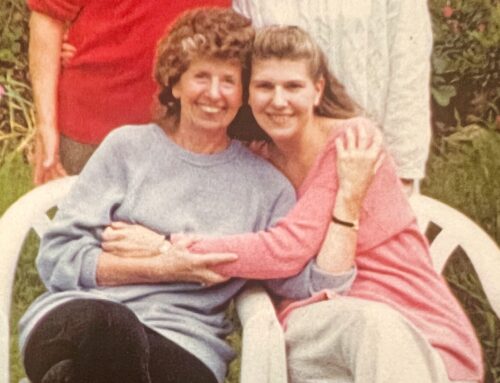So you’re right about this person. They really are disrespectful, rude, difficult, annoying, _______ feel free to fill in the blank with your own word that sums up the person you would happily NOT spend time with.
You know you’re right about them, because they do that thing that bothers you every time you see them or speak to them. You probably find that this person occupies quite a lot of your head space. In fact, it’s quite likely that you need only think about them to feel bugged.
On the plus side, you’re not alone – everyone else you’ve spoken to finds them exactly the same as you do, so at least you can feel satisfied that you are absolutely right about them.
The problem is, this doesn’t change anything; they still bug you every time you encounter them. If you’re lucky, the situation will stay the same, but most likely it will get worse and you will get more and more convinced that they’ll never change, despite your best efforts.
The nature of conflict
This is the nature of being in conflict with someone. Nothing you’ve tried has worked to make your relationship with them easier and you don’t know what else you can do. You may have given up on the relationship entirely and accept that you just have to tolerate them. The only comfort you have is your allies; they know just how you feel – they feel the same about them as you do!
Isn’t it curious that when we know we’re right about someone, we just feel compelled to find other people who agree with us? And don’t you find that if someone doesn’t agree with us, we find a reason to rapidly dismiss their opinion? I mean, if we really know we’re right about something, don’t we just know? Why then, do we need someone else to verify for us that we’re right?
Julie’s story
Until Julie experienced War to Peace, she was a master at enlisting allies. She had new evidence every time she encountered her boss that he was a bully and her colleagues all agreed with her. What she discovered at a War to Peace workshop is that the need to recruit allies is a sign that she had been contributing to her relationship difficulties, but hadn’t been ready to take responsibility for this.
Once Julie realised this, she was able to take a closer look at her own role in the difficulties she was experiencing with her boss. This left her feeling much more empowered, able to assess the situation with more clarity and her focus shifted from needing to be right to seeing what she could do to improve the situation.
Julie not only has a much better working relationship with her boss these days, she knows that seeking out people who agree with her about someone is a clear sign that she is not owning her part in the relationship difficulty.
Over to you
This week, just begin noticing the times you enlist allies.
You might find that you do this quite subtly by, for example, raising your eyebrows at someone else in the room when the person you find difficult is saying something (you know how we do this, that look you give someone that lets them know what you think about this person). Or you might find yourself asking a carefully selected person the rhetorical “It’s not just me, is it?” question.
Want more support?
If you want to get more insight about the role you are playing in your relationships that aren’t working the way you would like them to, you are invited to take a look at our FREE Spiral of Disempowerment tool™.
P.S. Pass it on!
Found this useful? Then please share this article using the icons below.
“I’m right about them and I KNOW it!”
And leave your name and email address at the top or bottom of this page to receive more articles like this.
©Halcyon Global 2013







Thanks for this, Chloe.
What I’ve noticed about enlisting allies is that it creates a sense of closeness with that person. There’s a gossip-y feel: we’re in a gang together and THAT person is out there. That’s why it’s seductive, right?
Great to shine a light on it and get out of that Spiral of Disempowerment, as you so aptly call it.
p.s. To others reading – I HIGHLY recommend Chloe’s War to Peace workshops. Deeply transformational.
You’re so right Corrina!
Who hasn’t felt that sense of togetherness with their ally? It’s like we can’t wait to share the next instalment with each other!
Delighted that you found the workshop so helpful.
Great article Chloe – you are so right. As Corrina says, enlisting allies does feel good, in a sort of not-good way. It doesn’t really feel right and yet it is reassuring somehow. To use this as a trigger to notice how you might look at the situation in a different way and start creating change is a lovely idea on how to make a situation like this more positive.
Thanks Rosemarie – I like that you’ve pointed to the reassurance we sometimes feel in having allies, even though it doesn’t really feel right.
I’m inspired by reading what you have posted to say this – the trouble with our allies is that we may have subsequently made amends and moved forward in the relationship, but our allies are often still waiting in the wings for our next update and we may then feel pulled back into warring, as we are reminded by them of all the things we didn’t like about the person we’ve made progress with! What is are alternative then – maybe go to War with our ally?
Fortunately, this is a great opportunity to ‘tell on ourselves’ and let our ally know what we’ve been up to and how we moved forward. In this way we can not only stay at Peace with them, we can share with them what we know about allies and how unhelpful it can be to enlist them….
Love the blog Chloe. Especially the non verbal way we enlist allies ( eyebrow raising).
I agree with Corrina about your workshop. It’s transformative at many different levels. Thoroughly recommend it too.
Thank you Aisling – yes, there are many subtle ways of getting our allies on side! I’m so pleased you found the War to Peace workshop transformative, knowing this makes what we do feel so worthwhile.
In my experience its easy to continue to “attach” to a belief I have about someone long after I made that “judgement” without ever stopping to check, is that experience still true – really true for me now – and does it serve me any purpose to hang onto that belief? I have a choice, I can choose to be “right” about “them” or I can choose to be free of conflict………sometimes its as simple as checking in with myself and choosing peace not war!
Well put Nikki! I remember reading once ‘choosing to apologise doesn’t necessarily mean you were wrong; it may simply mean you care more about your relationship than being right.”
Love how you highlight “them” – it’s a great sign of being at War when we refer to “them” or refer to “those people”, as we typically become so focussed on how we are different (usually better!) than them and tend to forget to notice the ways in which we are alike or the times when we too have behaved the way they have, usually because we had good reason to at the time… you now how it goes!
Yes….I learned this fact 18 months ago when I went through a divorce and left my career.
Unfortunately, and to my surprise, my sister turned against me in a very cruel and vocal way… I noticed my tendency for a short while to try and enlist allies with my mum and her partner and my friends..
But it disempowerd me and I felt worse afterwards. I stopped the behaviour and changed my responses towards her, but she is still the same…:(
Nevermind, at least I feel I am not judging her so harshly and I wish her well deep within my heart.
This blogpost has given me food for thought. Thank you.
Great to have noticed Lisa! Our best hope of inviting new responses from others is once we become aware of how we’re being ourselves in the relationship we’re struggling with.
Sometimes it takes the other person a while to get used to our new self-aware selves and sometimes it takes a while for them to trust us or recover from feeling hurt. The good news is that doing the work of being at Peace with someone is never about getting someone else to change (although this is often what it invites from them); it is about us being the person we truly want to be, no matter what our circumstances and no matter how difficult the other person may seem to be. When we achieve this, our relationships – and our lives – become so much easier for us to be with.
Wonderful article, and I love the ‘Operating System’ analogy.
Here’s another take on it. Our Operating Systems have ‘viruses’ (subconscious emotional triggers) acquired very early on in life in a relationship with someone else, often an authority figure. These then get compounded and confirmed by subsequent relationships that subconsciously remind us of the early ones.
If I’m struggling with someone, I ask myself, ‘Who does this person remind me of?’, or more precisely, ‘Who does what I’m feeling about this current person remind me of?’. Clear the emotional triggers (I use Meridian Tapping) and the person in front of me somehow magically changes 🙂 . Actually they haven’t changed at all, I’ve simply located and cleared whatever they were triggering in me (which was never about them in the first place).
I’ve joined the mailing list and am looking forward to reading more!
PS: For info, I’m not sure the sign-up box at the bottom of the page is working properly – it processed my name before I’d entered an email address.
I’m glad you enjoyed the article Linda and delighted that you have been exploring our site to find out more about the War to Peace methodology!
I love your take on our Operating System acquiring viruses – and your mechanism for handling them. What you have discovered lies at the heart of War to Peace, that the other person does not need to change in order for us to experience them as changed. This is not always easy for us to recognise, particularly in protracted conflicts, and it is brilliant when we do – especially when we have the means to know what to do about it!
Thanks for letting us know about the mailing list sign up at the bottom – we’ll get our tech guys onto it straight away.
This is great stuff and enormously valuable to everyone (who is living and breathing and interacting with the human race!). I just downloaded your Spiral of Disempowerment Tool and it’s great!! So often we witness an action/behaviour from someone, and then our perception of it begins a spin cycle (or downward spiral!) – and our determination to be ‘Right’ continues the cycle. Your tool makes it clear that we can take back Control and free ourselves from the pain of our misguided perceptions.
I look forward to receiving more tips from you in my inbox! Thankyou 🙂
So pleased you found it helpful Ann. The Spiral of Disempowerment remains my top tool for using whenever I am finding someone difficult and always gives me insight into what I’m doing that’s not helping the situation!